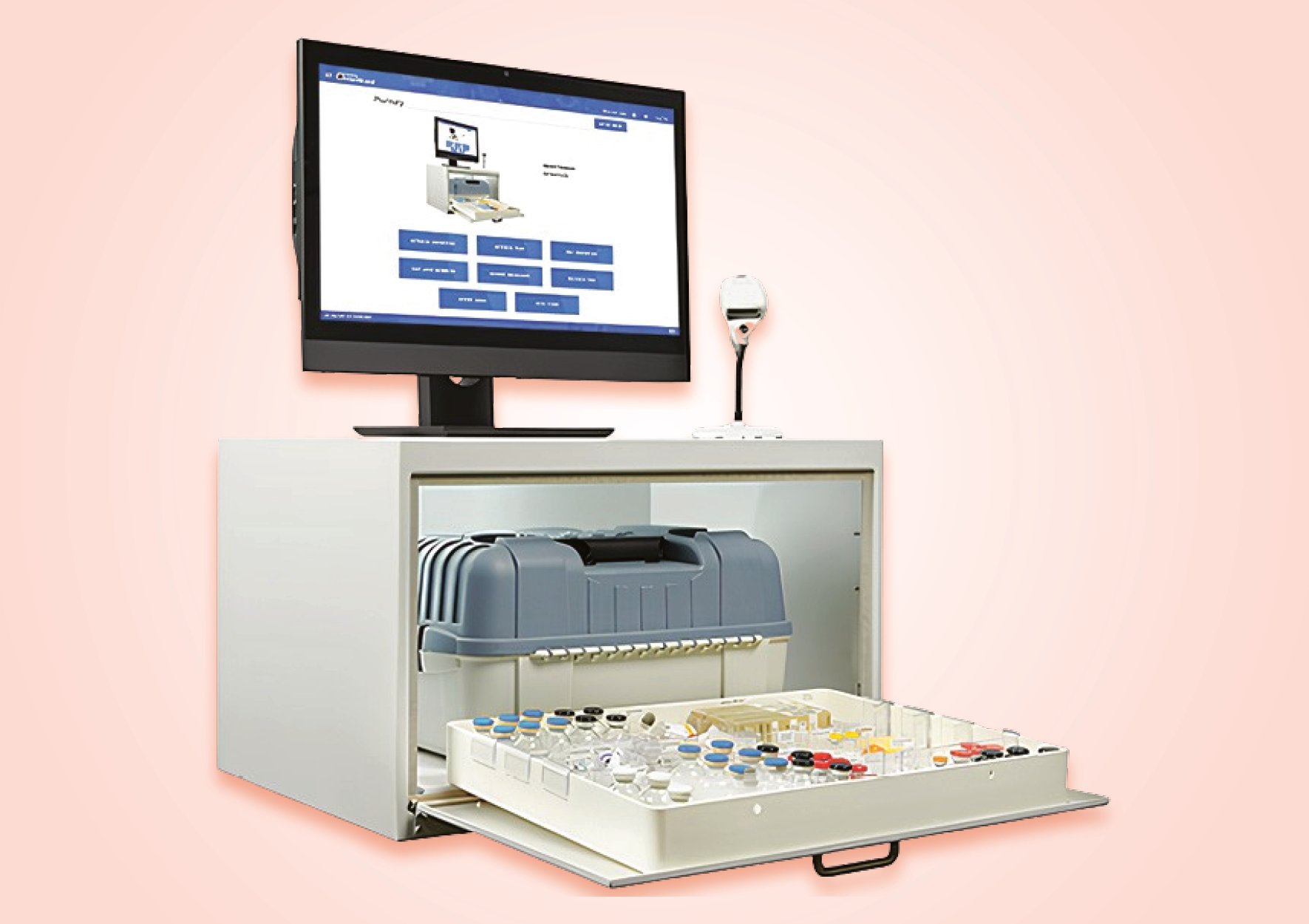- Show Menu
- Contact Us
- FAQs
- Reader Service
- Survey Data
- Survey Winners
- Testimonials
- Upcoming Events
- Webinars
- White Papers
Pharmaceutical Waste Program from Stericycle
Northwestern Memorial Hospital in Chicago is an 875-bed, academic teaching hospital, and as one of only 21 National Comprehensive Cancer Network hospitals in the country, we see about 150 outpatient cancer patients a day in addition to our 100 inpatient oncology beds. Serving our patient population requires extensive handling of cytotoxic and other drug waste. As part of an overall movement toward greener practices, our goal is to efficiently and safely manage the significant amount of pharmaceutical waste we produce. To address the growing amount of hazardous and non-hazardous pharmaceutical waste generated in our facilities, Northwestern Memorial contracted with Stericycle in 2008 to handle all of our pharmaceutical waste.
Bearing the Cost
At our hospital the safety department was the champion for partnering with a company with significant experience handling pharmaceutical waste. While the pharmacy department does not bear the budget responsibility for waste management, it along with several others, does absorb some of the operating costs. For example, we produce a large amount of waste in our pharmacy cleanroom, and the onus is on our cleanroom staff to alert our environmental service workers when disposal is necessary. At the same time, the pharmacy staff must segregate the waste according to established waste streams. These tasks take time and require consistent training and monitoring. Combine this with formulary changes or situations where a hazardous drug is downgraded to non-hazardous, and the workload burden becomes clearer.
Contracting Considerations
Although our pharmacy department was not involved in the initial engagement with Stericycle, our experience coupled with that of nursing and other procedural areas will certainly be factored in to future contract negotiations. When considering partnering with a vendor for pharmaceutical waste services, a concept worth substantial review is the ability of the vendor to manage multiple waste streams. From hazardous and nonhazardous pharmaceutical drug waste to sharps and biohazard waste, most hospitals generate a significant amount of waste. Once regular trash and recycling are included in this mix, consolidating all waste removal with a single vendor can provide economies of scale and simplify paperwork requirements. Of note, the only waste stream you cannot consolidate is nuclear waste, as there are special regulatory requirements for radiological or nuclear byproducts.
Policies and Procedures
The first step in engaging Stericycle was to have the hospital formulary characterized into specific waste streams to facilitate compliance with EPA and Department of Transportation (DOT) regulations. Pharmaceuticals were identified as P- and U-listed as well as characteristically hazardous (ie, corrosive, toxic, reactive, ignitable) or non-hazardous. Approximately 5% of our drug waste qualified as hazardous (characteristically hazardous and P- and U-listed), so we inserted a designation into our electronic health record to identify these medications and ensure that they are properly segregated, handled, transported, and disposed of. In addition, messaging was built into patient-specific drug labels and is displayed on automated dispensing cabinets, where about 80% of our drugs are stored.
The key to a successful pharmaceutical waste management program is consistent reinforcement of practices. Having recently finished our annual training, we held four sessions for the pharmacy department alone, and added sessions for safety and environmental service employees. We also developed a routinely updated online training module for new employees or current staff who are unable to attend the live sessions.
It is worth inquiring with any potential vendors as to whether they can accommodate different training regimens for all the affected departments. At our facility, each department handles training a little differently. Anesthesiologists, operating room technicians, patient care nurses, environmental service workers, and safety technicians all interact with our vendor in different ways, and their individual educational needs should be met with tailored training programs.

Audits and Regulatory Requirements
A key benefit of Stericycle’s service is that they perform quarterly audits of all our pharmaceutical waste containers to ensure waste products are being placed in the right stream. During a recent audit, non-hazardous waste was found mixed with hazardous waste from an operating room satellite. After tracing the audit trail, we were able to positively retrain staff on the proper protocol. It is important to remind staff that if there is any doubt as to where to dispose of a certain item, always defer to the higher-level pharmaceutical waste stream container. By reviewing areas where waste mixing is occurring, we can refine our training to address problematic products.
Ensuring compliance with the myriad regulations for pharmaceutical waste management, including requirements for transportation and incineration, is an enormous task. However, the impact that proper waste management can have on the bottom line (not to mention the health and viability of our staff and environment) cannot be overstated. Because properly handling and disposing of pharmaceutical-related waste can be overwhelming, I would not recommend a pharmacy department take on such a task alone. Partnering with a third party provider with regulatory expertise, manpower, and experience can be quite advantageous, as it takes a lot of energy and resources to sustain such a complex program.
Looking Ahead
When considering pharmaceutical waste management service providers, determining whether they can handle multiple waste streams is perhaps paramount. It is also important that all affected disciplines (physicians, nurses, environmental service workers, safety technicians, pharmacists, and risk managers) contribute to the vendor selection discussion and that champions hail from more than one department. To sustain good results, make sure to solicit feedback from all staff, as their willingness to align their activities with the best interests of the facility will be the key to success.
 Desi Kotis, PharmD, is the pharmacy director at Northwestern Memorial Hospital in Chicago, Illinois. She received her PharmD from the University of Illinois.
Desi Kotis, PharmD, is the pharmacy director at Northwestern Memorial Hospital in Chicago, Illinois. She received her PharmD from the University of Illinois.
Like what you've read? Please log in or create a free account to enjoy more of what www.pppmag.com has to offer.








